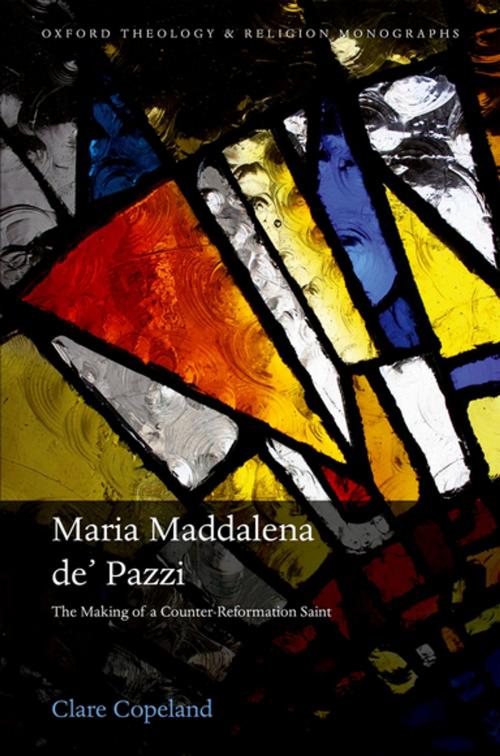Maria Maddalena de' Pazzi
The Making of a Counter-Reformation Saint
Nonfiction, Religion & Spirituality, Christianity, Denominations, Catholic, Catholicism, History| Author: | Dr Clare Copeland | ISBN: | 9780191088148 |
| Publisher: | OUP Oxford | Publication: | August 18, 2016 |
| Imprint: | OUP Oxford | Language: | English |
| Author: | Dr Clare Copeland |
| ISBN: | 9780191088148 |
| Publisher: | OUP Oxford |
| Publication: | August 18, 2016 |
| Imprint: | OUP Oxford |
| Language: | English |
This work offers a detailed reconstruction of the campaigns for and trials resulting in the beatification (in 1626) and subsequent canonization in 1169 of the Florentine mystic nun, Maria Maddalena de' Pazzi (1566-1607). Clare Copeland places her findings in the wide context of the politics of saint-making at a time of particular significance for the history of Roman Catholic canonization. The Protestant Reformation had put the Roman Catholic Church on the defensive in this area of devotional practice and the period covered in this volume (ca. 1600-1669) saw far-reaching reforms in the ways in which sanctity was measured and adjudicated by Rome. Copeland shows how these developments need to be seen less in terms of a top-down attempt by the central organs of ecclesiastical control to impose a hegemony of holiness and more in terms of negotiation over the meanings of sanctity—and how it relates to canonization-between the various stakeholders.
This work offers a detailed reconstruction of the campaigns for and trials resulting in the beatification (in 1626) and subsequent canonization in 1169 of the Florentine mystic nun, Maria Maddalena de' Pazzi (1566-1607). Clare Copeland places her findings in the wide context of the politics of saint-making at a time of particular significance for the history of Roman Catholic canonization. The Protestant Reformation had put the Roman Catholic Church on the defensive in this area of devotional practice and the period covered in this volume (ca. 1600-1669) saw far-reaching reforms in the ways in which sanctity was measured and adjudicated by Rome. Copeland shows how these developments need to be seen less in terms of a top-down attempt by the central organs of ecclesiastical control to impose a hegemony of holiness and more in terms of negotiation over the meanings of sanctity—and how it relates to canonization-between the various stakeholders.















